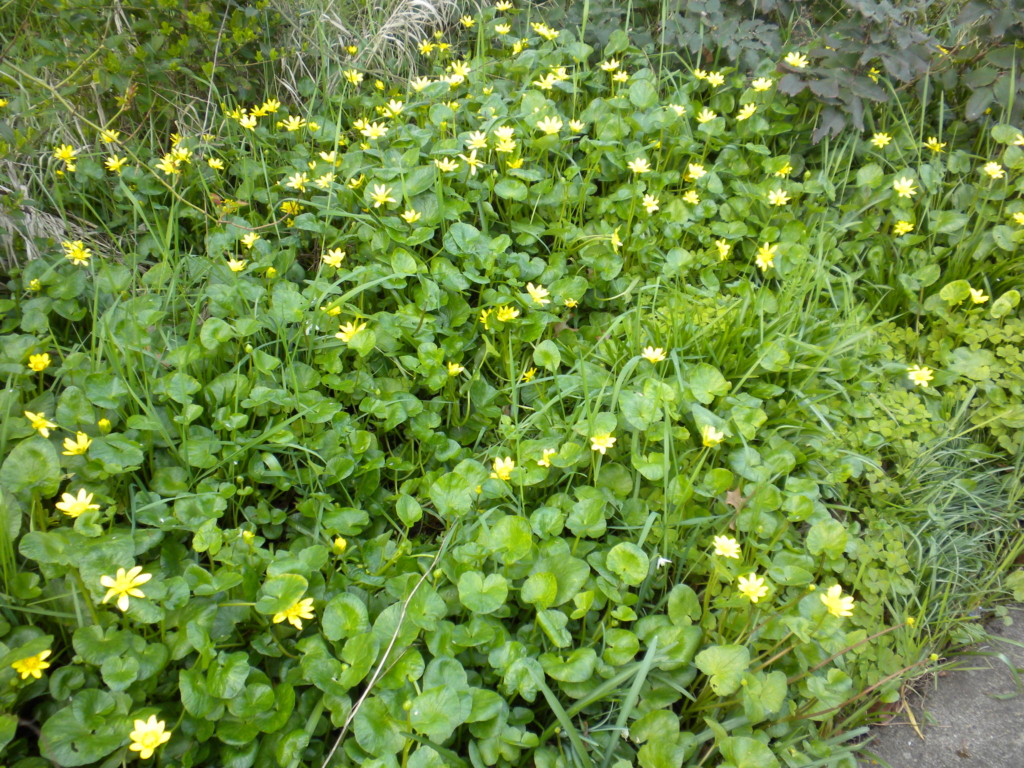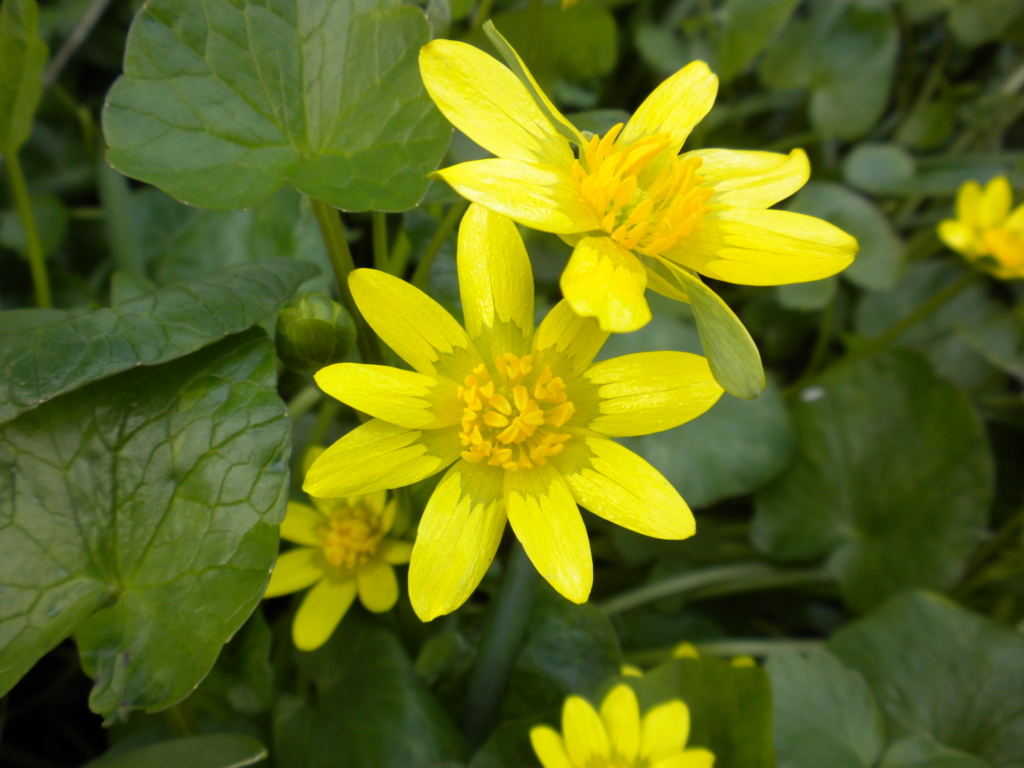Lesser Celandine
Ficaria verna (formerly Ranunculus ficaria)
Plant Description
Yellow flowers, bulblets at stem bases, and dark-green, shiny, kidney- to heart-shaped leaves. Forms continuous carpet of growth.
Plant Details
| Life Forms | |
|---|---|
| Habitats | |
| ODA Listing | |
| Soil and Moisture Conditions | |
| Suggested Actions | |
| Shade Preference | |
| Mature Height | 4-12" |
| Distribution | Found in 20 northeastern states and in Oregon and Washington. |
| Control | Small infestations can be removed by digging up and being sure to remove entire underground parts of plant, especially bulbets and tubers. Remove as early as possible in the season to avoid impacts to native plant species. |
| Reproduction and Spread | Propagates by bulblets and tubers that are carried downstream and spread by digging. |
| Introduced | introduced to US from Eurasia as an ornamental. |
| Look Alikes | native marsh marigold |
| Impact | Riparian invader; very difficult to control; propagates by tubers; eventually forms monocultures. Blooms as early as late January until May or so and displaces native forest understory spring-flowering plants. |
| More Info |
© Marion Soil and Water Conservation District. All Rights Reserved.


